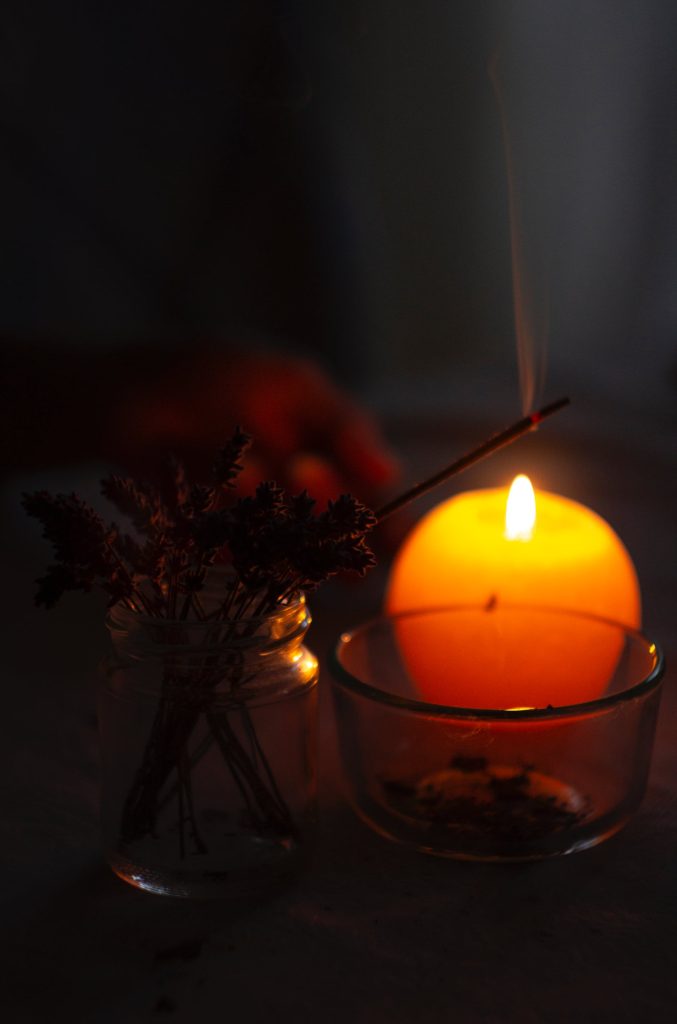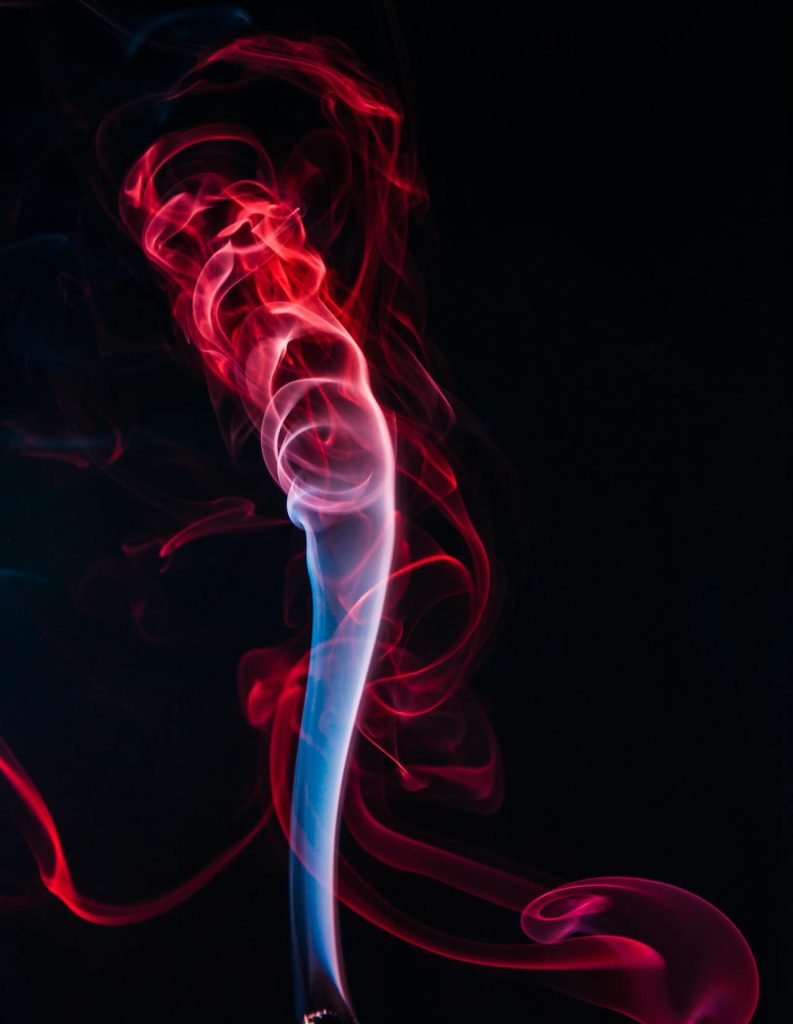

Incense Burners and Air Purification: Is Incense Good or Bad for You?
- Author: Hugo Murray
- Published Date:
- Modified Time:

Introduction:
Incense burners have been used for centuries to create a pleasant and relaxing atmosphere. However, there is some debate about whether or not incense smoke is good for you. Some people believe that incense smoke can help to purify the air and improve respiratory conditions, while others believe that it can be harmful to your health.
So, what is the truth? Is incense good or bad for you?
The Science Behind Incense Smoke:
Incense smoke is made up of a variety of different compounds, including particulate matter, volatile organic compounds (VOCs), and carbon monoxide. Particulate matter is a mixture of solid particles and liquid droplets found in the air. VOCs are organic chemicals that have a high vapour pressure, meaning they evaporate easily at room temperature. Carbon monoxide is a colourless, odourless gas that is produced when carbon is burned.
The Effects of Incense Smoke on Health:
Particulate matter and VOCs can be harmful to your health, even when present in low concentrations. Exposure to particulate matter can increase your risk of developing respiratory problems, such as asthma, bronchitis, and lung cancer. Exposure to VOCs can also cause a variety of health problems, including headaches, nausea, dizziness, and respiratory irritation.
Carbon monoxide is also poisonous and can cause serious health problems, including death. However, the levels of carbon monoxide in incense smoke are typically very low and are not considered to be a major health hazard.
Incense Smoke and Air Purification:
Some people believe that incense smoke can help to purify the air and improve respiratory conditions. However, there is no scientific evidence to support this claim. In fact, studies have shown that incense smoke can actually make air quality worse by adding pollutants to the air.
Is Incense Good or Bad for You?
So, is incense good or bad for you? The answer is that it depends on a number of factors, including the type of incense you are using, how often you burn incense, and your overall health.
If you have respiratory problems, such as asthma or allergies, it is best to avoid burning incense altogether. Incense smoke can irritate your airways and make your symptoms worse.
If you are otherwise healthy and you enjoy burning incense, there is no need to stop. However, it is important to be mindful of the potential health risks.
Here are some tips for burning incense safely:
- Choose incense sticks or cones that are made from natural ingredients. Avoid incense that contains synthetic fragrances or dyes.
- Burn incense in a well-ventilated area. Never burn incense in a small, enclosed space, such as a bedroom or bathroom.
- Do not burn incense for more than a few hours at a time.
- Extinguish incense completely before leaving the room or going to bed.
If you experience any health problems after burning incense, such as respiratory irritation, dizziness, or nausea, stop burning incense immediately.
Air Purifiers and Incense Smoke:
If you do burn incense, you may want to consider using an air purifier to help remove pollutants from the air. Air purifiers can filter out particulate matter, VOCs, and other pollutants from the air.
Here are some tips for choosing an air purifier:
- Choose an air purifier that is the right size for your room.
- Choose an air purifier that has a HEPA filter. HEPA filters are very effective at removing particulate matter from the air.
- Change the air filter in your air purifier regularly.
Air Purification Technology and Products
At GreenTech EU, we believe that everyone deserves to breathe clean, healthy air. That’s why we offer a wide range of air purifiers and purification technologies that are designed to remove pollutants from the air and improve indoor air quality.
Our air purifiers use a variety of different air filtration technologies to remove pollutants from the air, including:
- HEPA filters: HEPA filters are very effective at removing particulate matter from the air. HEPA filters can remove 99.97% of airborne particles that are 0.3 microns in size or larger.
- Carbon filters: Carbon filters are effective at removing a variety of odours from the air, including smoke, cooking odours, and pet odours.
- UV lights: UV lights can kill bacteria and viruses in the air.
Our air purifiers are also equipped with advanced sensors that can detect a variety of pollutants in the air, including particulate matter, VOCs, and carbon dioxide. This allows our air purifiers to automatically adjust their fan speed and filtration settings to ensure that the air in your home is always clean and healthy.
To learn more about our air purification technology and products, please visit our online store.
Conclusion:
Incense burners can be a great way to create a pleasant and relaxing atmosphere in your home. However, it is important to be aware of the potential health risks of incense smoke. If you have respiratory problems or you are concerned about the health risks, it is best to avoid burning incense altogether. If you do burn incense, be sure to follow the safety tips above and consider using an air purifier to help remove pollutants from the air.
FAQs:
- Q: What is the best type of incense to burn?
A: The best type of incense to burn is incense that is made from natural ingredients. Avoid incense that contains synthetic fragrances or dyes.
- Q: How often can I burn incense?
A: You can burn incense as often as you like, but it is important to be mindful of the potential health risks. If you have respiratory problems, you should avoid burning incense altogether. If you are otherwise healthy, it is best to limit your incense burning to a few hours at a time.
- Q: What should I do if I experience any health problems after burning incense?
A: If you experience any health problems after burning incense, such as respiratory irritation, dizziness, or nausea, stop burning incense immediately. If your symptoms are severe, seek medical attention.
- Q: What is the best way to use an air purifier with incense?
A: If you use an air purifier with incense, it is important to place the air purifier in a central location in your room. This will help to ensure that the air purifier can effectively clean the air in your entire room.
- Q: How often should I change the air filter in my air purifier?
A: You should change the air filter in your air purifier every 3-6 months, or more often if you use your air purifier frequently.

Company Name – Refired Ltd
Company Number – NI 652639
Registered Company Address:
Suite 2b Cadogan House,
322 Lisburn Road,
Belfast, Co. Antrim,
Northern Ireland,
BT9 6GH
Social Media
- Youtube
Contact
- +44 7557994656
- +353 831869417
- [email protected]
- [email protected]

